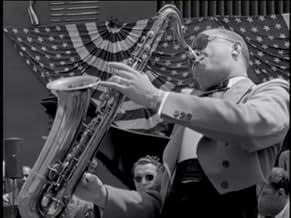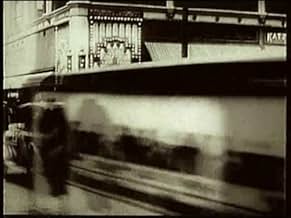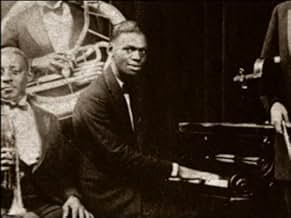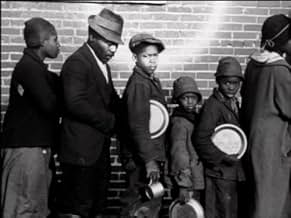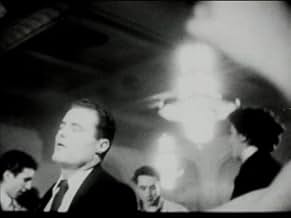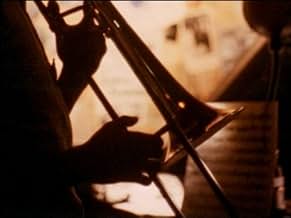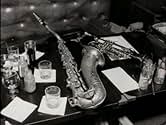IMDb RATING
8.6/10
2.7K
YOUR RATING
A survey of the musical form's history and major talents.A survey of the musical form's history and major talents.A survey of the musical form's history and major talents.
- Nominated for 5 Primetime Emmys
- 2 wins & 7 nominations total
Browse episodes
Featured reviews
I enjoyed watching "Jazz" but as the show progressed I enjoyed it less and less. Much of it is because I simply like the older jazz and swing music and didn't enjoy the more modern free-form style of jazz. Much of it is also because the more I watched the show the more I noticed a few biases. EVERY EPISODE MENTIONED LOUIS ARMSTRONG. While he was a jazz great, it was obvious that Ken Burns REALLY adores Louis Armstrong and I wish he'd just made a show about him! He also strongly loves Duke Ellington. But he also inexplicably skips over some jazz or swing musicians who deserved mentioned--in particular Cab Calloway. He only mentions him BRIEFLY twice--and never positively or in any depth at all. The same could be said for Glenn Miller when the shows were about swing--it wasn't very complementary and was VERY brief (never even mentioning his premature death). This makes me wonder about what I watched--was it really the comprehensive history of jazz or just a particular and biased view? Still, despite this, the shows are well made, have some great music and did get me to appreciate and enjoy jazz and especially swing much more than I had. Worth seeing but I really would like to see some alternate view of the history of jazz, as it just felt like I was missing something.
This is a compilation that is pretty much essential for those coming to the music for the first time, and will afford a lot of pleasure to those who have been listening for some time too. Some of the film clips are breathtaking: you ask yourself 'where did he find that?' The focus is on the great figures of Armstrong, Ellington, Parker and Billie Holiday, which is appropriate since these people did more than others to shape the course of the music over the last century, but many viewers will be frustrated by the glancing attention and even omission given to some musicians. Why was it not thought necessary to show 'Lockjaw' Davis, Johnny Griffin, Tadd Dameron, Red Garland, Art Pepper, Lee Konitz, Jo Stafford and many more? Chick Corea and Keith Jarrett, where are they? It seems as though Winton Marsalis decided who the great ones were, and the worthy ones could be ignored.
I will praise the editors who took this huge mass of material and made something coherent and entertaining out of it. We must forever be in their debt. The way is now clear for some documentarist to make a series on jazz from 1960 to today.
I will praise the editors who took this huge mass of material and made something coherent and entertaining out of it. We must forever be in their debt. The way is now clear for some documentarist to make a series on jazz from 1960 to today.
Ken Burns' Jazz documentary, which is a twenty-hour documentary (too long or not long enough would be the argument, I'd go with not long enough), details the history of Jazz from its origins in Ragtime, up until the 1960's. It is indeed insightful for those who do not know the histories of these people, pretty much all of them terrific or outstanding, and it does try to take you inside their world. As one who has only really gotten into Jazz within the past few years, as just a history lesson it keeps attention most of the way through.
The problems one can find in the documentary could be really squared down to two. The first is that Burns, while talented and obviously with a good research team and plethora of pictorial aids, forgets something about Jazz- it's supposed to be fun! There's something about the sense of humor and vitality of jazz that gets lost among the heavy-handed narrations, that make jazz out to be as mighty and colossal as the Greeks or the Romans. Jazz is important to the world of music, but much of what is spoken trumps most of the experiences in the stories (not that a few of them aren't entertaining- most of the stuff involving Armstrong, Bix, Blaisie, and Art Tatum keeps interest that way). The second problem, which is a given considering the length of the documentary, is that there isn't enough room for everyone, and after Miles and Coltrane, it just halts. It would be intriguing if Burns went back and did a 'special edition' treatment, and cover more ground on what he had, and expand into the great jazz that did come out since the 60's (and there has been a few, believe you/me).
If you're wanting to get into the atmosphere, the moods and histories (and of course the music, some of it rare here) on Jazz, basically this is the best place to start. But if you're already an aficionado, or if you don't have the utmost attention span to watch all of the footage, it may comes to let-down.
The problems one can find in the documentary could be really squared down to two. The first is that Burns, while talented and obviously with a good research team and plethora of pictorial aids, forgets something about Jazz- it's supposed to be fun! There's something about the sense of humor and vitality of jazz that gets lost among the heavy-handed narrations, that make jazz out to be as mighty and colossal as the Greeks or the Romans. Jazz is important to the world of music, but much of what is spoken trumps most of the experiences in the stories (not that a few of them aren't entertaining- most of the stuff involving Armstrong, Bix, Blaisie, and Art Tatum keeps interest that way). The second problem, which is a given considering the length of the documentary, is that there isn't enough room for everyone, and after Miles and Coltrane, it just halts. It would be intriguing if Burns went back and did a 'special edition' treatment, and cover more ground on what he had, and expand into the great jazz that did come out since the 60's (and there has been a few, believe you/me).
If you're wanting to get into the atmosphere, the moods and histories (and of course the music, some of it rare here) on Jazz, basically this is the best place to start. But if you're already an aficionado, or if you don't have the utmost attention span to watch all of the footage, it may comes to let-down.
It takes guts and talent to put together an idea like this and execute on it. Producer and director Ken Burns pulled off something we all wanted see in a documentary film. If it weren't for him, we may not have seen the likes of it in our life time. This near 20 hour epic takes Jazz from its roots to its modern day incarnations. I've learned quite a bit about history of jazz by watching this mini series, but I think the story told is little bit lop-sided. What Ken Burns failed (or purposely omitted) was the entire history of jazz guitarists. There's absolutely none represented in this series - zilch (!), and don't tell me that guitar wasn't an important part of jazz history. What Ken told was the story of jazz keyboard, and horn virtuosos. Not bad, but I still wanted to see some guitar in this series.
Martin Scorsese filled some gap with his "Blues" mini-series about blues guitarists, but a comprehensive history of jazz guitar history is still missing. Would some talented and daring director please take on the challenge ?
Martin Scorsese filled some gap with his "Blues" mini-series about blues guitarists, but a comprehensive history of jazz guitar history is still missing. Would some talented and daring director please take on the challenge ?
Don't bother with the U.K. version (12 hours) buy the USA version (19.5 hours) it contains more and can usually be found at lower cost.
Covers the birth of jazz, swing era, move to bebop, free modal very well, but there is only scant coverage of more modern moves in the field of jazz.
Mr Burns has argued that he is more of an historian than a critic and as such he can only really deal with the phases of jazz that are from the past. This line of reasoning is, I think, not un-reasonable.
A nice touch on the DVDs is that when a piece of music is playing then pressing the "info" button on the DVD or its handset, brings up a screen about the music being played, e.g. title of music, who wrote it, who is playing, when was it recorded, etc.
Covers the birth of jazz, swing era, move to bebop, free modal very well, but there is only scant coverage of more modern moves in the field of jazz.
Mr Burns has argued that he is more of an historian than a critic and as such he can only really deal with the phases of jazz that are from the past. This line of reasoning is, I think, not un-reasonable.
A nice touch on the DVDs is that when a piece of music is playing then pressing the "info" button on the DVD or its handset, brings up a screen about the music being played, e.g. title of music, who wrote it, who is playing, when was it recorded, etc.
Did you know
- ConnectionsFeatured in WatchMojo: Top 10 Documentary Mini Series (2015)
- How many seasons does Jazz have?Powered by Alexa
Details
- Release date
- Countries of origin
- Official site
- Language
- Also known as
- Jazz, la historia
- Production companies
- See more company credits at IMDbPro
- Runtime
- 1h 48m(108 min)
- Color
- Sound mix
- Aspect ratio
- 1.33 : 1
Contribute to this page
Suggest an edit or add missing content


